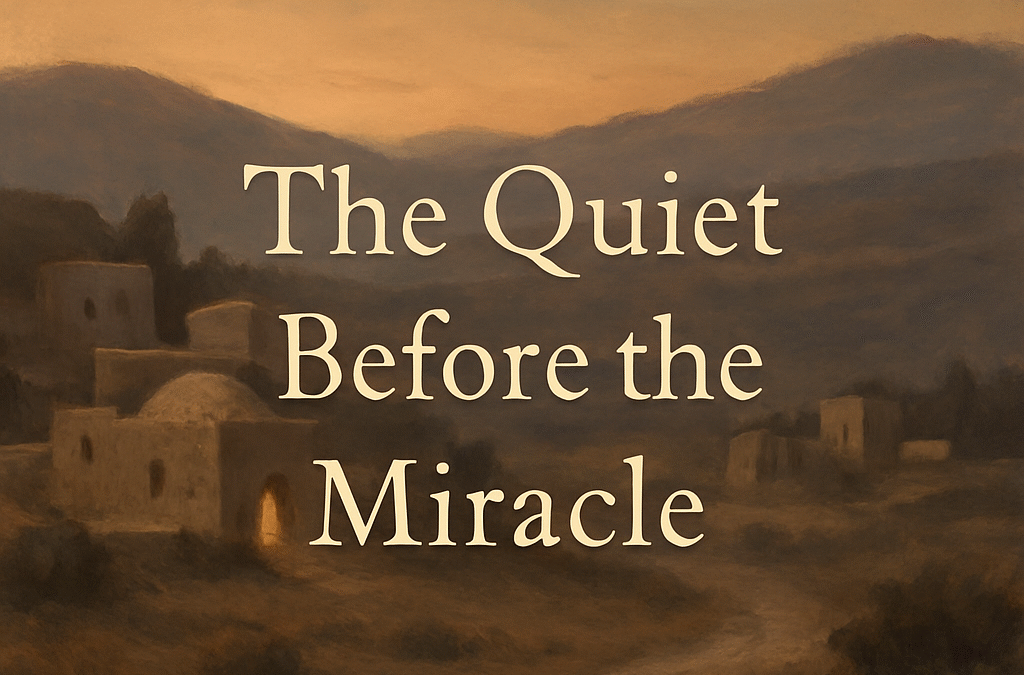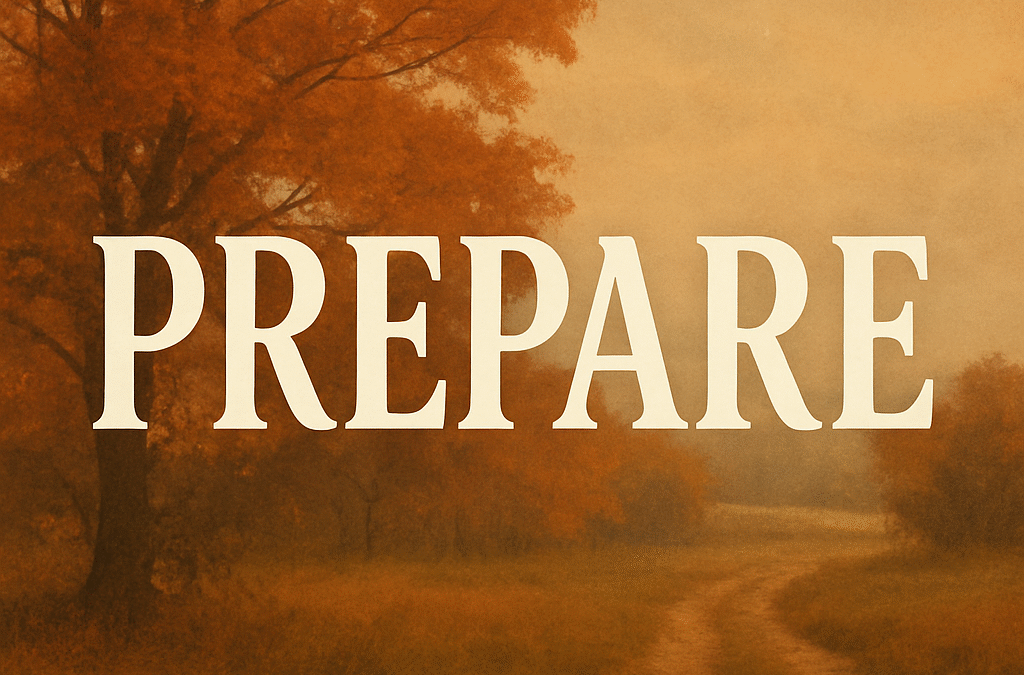
The Quiet Before the Miracle
The Quiet Before the Miracle
The Quiet Before the Miracle
When the World Felt Ordinary
In the days before Jesus was born, the world felt ordinary.
Rome issued a decree — just another command from a distant emperor who controlled taxes, travel, and the details of civilian life. It didn’t feel holy. It didn’t feel prophetic. It didn’t feel like God was anywhere in it.
It felt like paperwork.
Politics.
Business as usual.
Yet that decree — that dry, bureaucratic announcement — moved an unnoticed couple from Nazareth to Bethlehem at the exact moment a seven hundred year old prophecy whispered its fulfillment.
“But you, Bethlehem… from you shall come forth for Me the One who will rule in Israel.”
Micah five, verse two.
No one in Rome knew.
No one in Judea noticed.
The world simply shifted under the emperor’s command — unaware that heaven was steering every step.
And while nations moved, something even quieter was unfolding in a small village in Galilee.
Two Ordinary Lives
Mary and Joseph were preparing for marriage.
A carpenter shaping beams and planks.
A young girl preparing linens and a home.
Two ordinary people, living ordinary days.
Nothing about their life felt like destiny.
Nothing felt extraordinary.
Nothing felt like they were standing on the edge of the greatest moment in human history.
But they were.
Just two lives, joined in an ordinary engagement… yet perfectly positioned in tribe, in lineage, in timing, in place — all because God had been preparing them long before they ever realized it.
And here’s what stirs the heart:
God had been preparing for this night since the dawn of creation.
From the moment Adam and Eve first cried in the garden…
through the flood and the patriarchs…
through wanderings and wars…
through kings and exiles and returns…
through broken families and reunions and second chances…
God was protecting a single bloodline.
A fragile human thread.
A line of births and blessings and mercies that eventually led to a teenage girl in Nazareth and a carpenter who loved her.
And Mary and Joseph had no idea.
They were simply living their days.
Just like you.
Where Their Story Meets Yours
This is where their story quietly opens its door and invites you inside.
Because what God was doing for them, He is doing for you.
“In those days a decree went out from Caesar Augustus…”
Luke chapter two, verse one.
In those days…
your days…
these days that feel in-between and unnoticed and unremarkable…
God may be arranging something you cannot see.
The quiet weeks.
The ordinary routines.
The slow mornings.
The responsibilities that feel repetitive.
The decisions that look small.
The moments that feel like nothing is happening at all.
These are often the places where heaven works the hardest.
Mary and Joseph didn’t know their normal was holy.
They didn’t know their errands, their preparations, their conversations, their ordinary days — were aligning with prophecy written centuries before.
You don’t always know either.
But the same God who arranged Bethlehem…
who aligned the nations…
who wove together generations…
who guided a carpenter and a young girl into a story only He could write…
is working with the same gentle precision in your life right now.
Look Again at Your Ordinary Days
God is often closest when life feels quietest.
He is most deliberate when everything looks ordinary.
And He is never more at work than when you cannot see a thing.
So look at your life again.
Not with tired eyes… but with expectation.
With the kind of hope Mary must have carried before she even understood why.
Because the miracle doesn’t begin the moment you see it.
It begins long before — in the pieces God is quietly aligning in the dark.
Your quiet days may be the doorway to something holy.
Don’t step over them.
Lean into them.
Pay attention.
One of them may already be Bethlehem.
Prayer
Father, awaken my heart to Your hidden work.
Help me walk slowly enough to sense Your presence in my ordinary days.
Give me the courage to trust what I cannot see
and the faith to believe that You are preparing something good in my life.
Amen.




